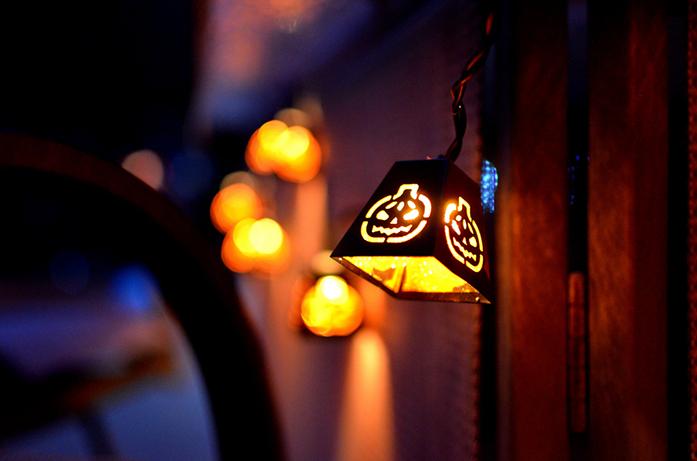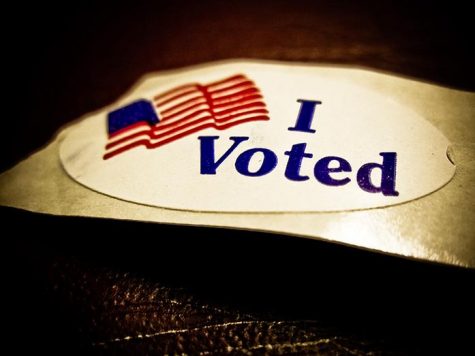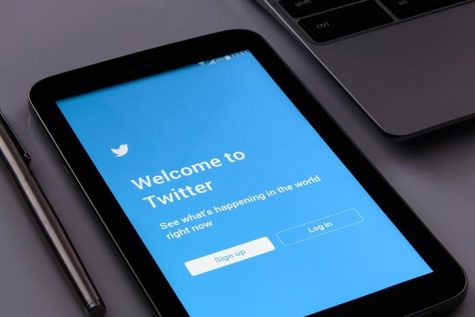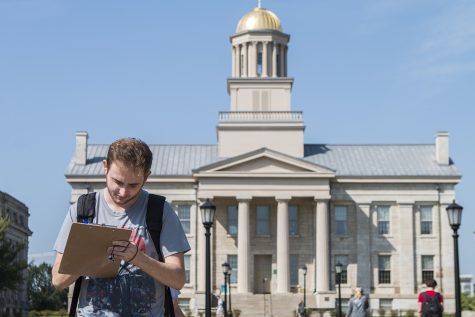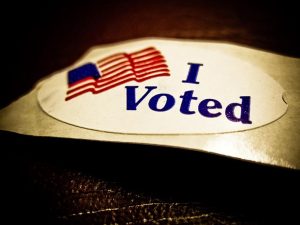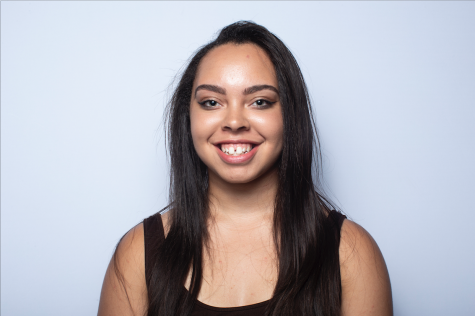Column: Don’t appropriate my culture this Halloween
Don’t wear “native” costumes this Halloween, because you’re actually subjugating culture and silencing the voices of Native Americans across the country.
October 25, 2018
One in two Native American women have endured sexual violence in their lives. Native women face constant sexualization, often being portrayed in the media as a sexy maiden, ready to help and serve the white man whenever needed. Part of this sexualization comes from Halloween costumes that feature short, tight-fitting buckskin dresses with names like “Pocahottie” or “Sexy Indian Hottie.” Costumes such as this dehumanize us and make us seem like caricatures or objects who are only there for pleasure.
The public is subjected only to this caricature of a submissive maiden who is overtly sexual, resulting in that becoming their only view of us. To them, Native women aren’t regular people just like them. To them, Native women are sex objects who wear fake buckskin in their tipis, waiting for a white man to come and sweep them off their feet.
The argument that people dress up in “native” costumes, such as Pocahontas, to appreciate the character and not appropriate the culture is invalid. In fact, the character of Pocahontas is invalid because of its historical inaccuracy, stripping her of her true value as a powerful female icon with dignity.
When Disney made the film in 1995, it embellished the character of Pocahontas with long, slender legs; long, black hair; full lips; and a form-fitting, off-the-shoulder buckskin dress. Her character was cleverly hypersexualized and romanticized to appeal to the masses of Americans who have historically objectified and diminished women in the media, according to UNICEF USA.
RELATED: Smith: Cultural appropriation — when the cutting edge cuts
In actuality, almost the entire film is a fabrication of the true origins of Pocahontas. Pocahontas wasn’t even her real name, it was a nickname. Her real name was Amonute, according to the National Park Service. She was also only 11 or 12 when she reportedly saved John Smith after the English settled in Jamestown in 1607, according to Smithsonian Magazine.
So, when people dress up, scantily clad in fake buckskin, they’re actually sexualizing a little girl and erasing true Native American culture. These costumes strip Natives of the right to be angry — not only because dominant culture got the story wrong, but because they’re appropriating a culture whites demonized and murdered for years.
Starting in the 1880s, government-run boarding schools began to take Indian children from their families and strip them of their language and culture. U.S. Cavalry Capt. Henry Pratt, who founded the first boarding school in Carlisle, Pennsylvania, had a motto: “Kill the Indian, save the man.” His goal was to get rid of Native culture entirely and assimilate us into white society. This is just one of many attacks on Native American culture throughout history.
RELATED: Shaw: Native American voting rights are at risk
With all of this in mind, let’s take a look at the costumes again. They often feature beadwork and headdresses, both important aspects of Native cultures. The most common names of costumes are often things like “Indian Chief.” This, in particular, is an important part of the culture that we have been able to hold onto. These costumes mock the cultures that we have fought tooth and nail to preserve and pass on to future generations. They make a joke out of centuries of suffering and hardship.
Thus, the argument that dressing up as Pocahontas or other icons of a cultural group as a token of appreciation to their culture is rather offensive in nature. That appreciation is appropriation, overlooking the true historical and cultural narrative of those identified groups. By subjugating their culture, costume-wearers are diminishing the narrative of strong, spiritual Native Americans to sexualized images that aren’t accurate of the culture at all.
This Halloween, don’t go as a “native,” because you’re simply taking away the voices of a culture and replacing it with an inaccurate, incomplete, commercialized voice.



